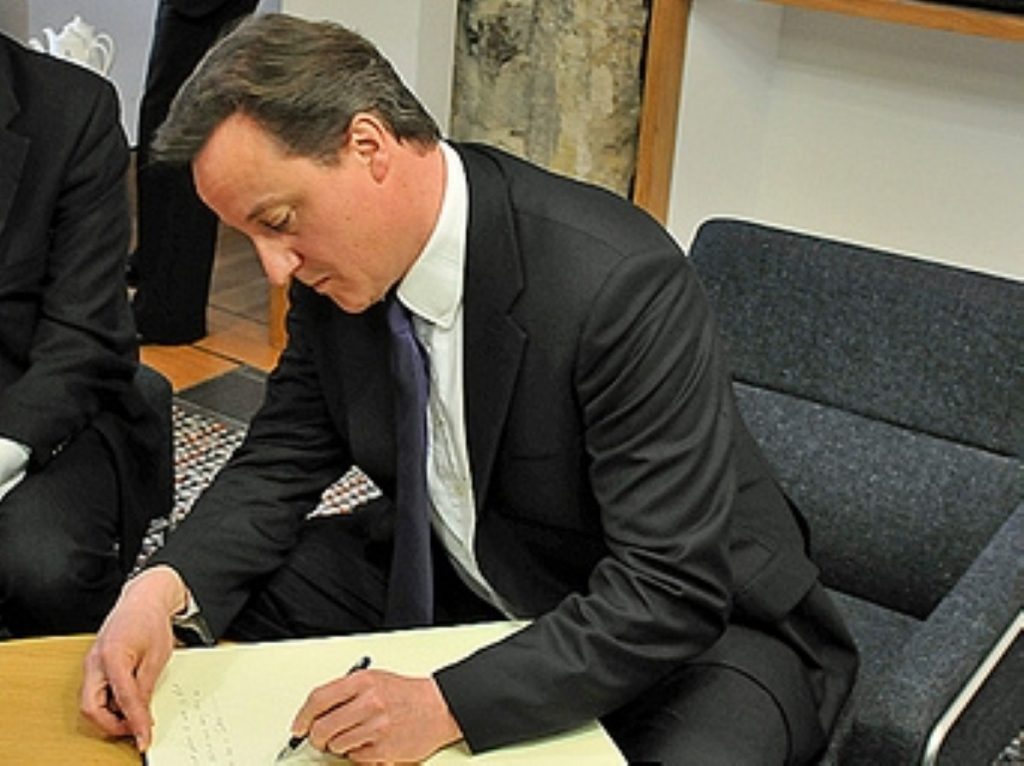Analysis: Cameron’s biggest decision this year
It's set to be David Cameron's biggest decision this year. Not the economy, or home affairs, or even how he plays the Scottish independence referendum. Who he chooses to appoint as Britain's next European commissioner is going to be critical for the UK's standing on the continent – and for his position as leader of the Conservative party.
Yes, it's that time again. In the build-up to e this summer, when the prime minister will dispatch off to Brussels the man or woman who will be Britain's sole commissioner in Europe, the papers are going to be full of speculation about which deserving Tory is in line for the nod.
Last time round Gordon Brown handed the job to Labour peer Cathy Ashton, who ended up taking on the high-profile foreign affairs gig. Her limited success aside, it's likely that Britain will be hoping to get one of the big economic portfolios this time around. Trade, perhaps, or internal market reform. In the context of Britain's attempt at a renegotiation of its relationship with the EU, who takes this on is of the highest importance.
Cameron has some thinking to do, though. He will have to put forward his choice in the aftermath of a set of European elections everyone in Westminster expects will be catastrophic for his party. This appointment will be a chance to appease eurosceptics – but it's also full of risk, because choosing the wrong person could prove a thorn in his side for years to come. So who are the runners and riders? Here's five of the most likely candidates.


Andrew Mitchell
The 'natural justice' candidate. He has the most emotionally compelling story: having been hounded out of government by the plebgate scandal, which yesterday saw one police officer jailed for 12 months, he has lost out. Handing him the European Commission gig would see him remain an important figure for years to come.
But while his name has been in the frame for some time, the view among those in the know is that his chances are diminishing. While international development was a global portfolio, the view is he just hasn't had the right experience. It would now be viewed as a big surprise if he were to get the nod this summer.

Peter Lilley
The other senior Tory being talked about through 2013 was John Major's trade and industry secretary. This was the man who oversaw Britain's entry into the internal market after its reform in 1992 – and therefore the man whose supporters argue ought to be charged with overseeing the next wave of reform from Brussels.
Lilley, who has not been a serious frontline political player since earning himself the nickname 'Silly' because of his penchant for turning party conferences into impromptu musicals in the late 90s, ticks the box when it comes to the right level of euroscepticism. He is not desperate for a British exit, but remains deeply critical. He has a safe seat and there is a very limited Ukip presence, so a by-election disaster would be unlikely.
But he would only be a really appropriate candidate for one of the jobs on offer. And as it is the new European Commission president who divides up the jobs, No 10 may view Lilley as too much of a risk.

David Willetts
'Two-brains', as everyone calls the coalition's cleverest minister, is emerging as a new option who is getting everyone interested. He is not technically a Cabinet minister, which undermines his case, but is well-respected and has used his universities and innovation portfolio to be active on the continent in various conferences. Willetts is genuinely interested in European people as well as European politics – not a bad quality to have in this role.

Michael Fallon
The other new name emerging since the new year is even lower down the government ranks than Willetts. But Fallon, who has an unusual cross-departmental portfolio covering both energy and business, is viewed as a competent all-rounder whose reputation is on the rise. His brusque style would be well-matched to dealing with the bureaucrats that infest Brussels. And he is an important figure in the Tory party, which could prove critical in the fevered climate that is almost certainly going to prevail in right-wing circles after this year's European elections.
John Cridland
What the CBI director-general has over all the others is simple: he's not an MP. This means there would not be the need for his appointment to result in a by-election, which would be the case for all of the above. Downing Street is understandably desperate to avoid another bruising drubbing if at all possible. And Cridland, backed by British businesses and having adopted a balanced position in response to Cameron's European reform agenda, might be a decent ally to have in Europe. His lack of political nous could work against him, however.

—-
Feel free to mock ruthlessly if, as is almost certainly the case in speculative articles over this unpredictable appointment, none of them actually end up getting it…













